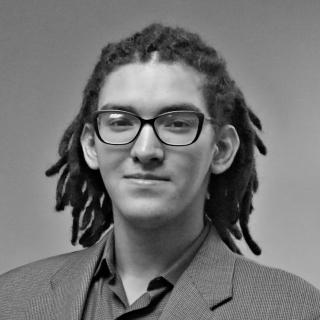
Hispanic Leadership Summit discusses what to do with data about Latinos
Given the demographic information already gathered about Latinos, this panel asks how this information can best be wielded to support the community?
On Dec. 7-8, 2022, We Are All Human hosted the Hispanic Leadership Summit, bringing in experts from across industries to speak about a multitude of topics related to the Hispanic community.
One panel was formed to discuss the possibilities of the data being gathered about the Latino community, and sought to find answers for how the information could best be used.
Comprising the panel were Julieta Schuster, Vice President at CIO Family Care & Proctor and Gamble; Maria Cuba, Director of Community Partnerships at Airbnb; Debbie Salas-Lopez, MD, MPH, Senior Vice President of Community & Population Health at Northwell Health; and Marissa Solis, SVP of Global Brand and Consumer Marketing for the NFL.
The discussion was moderated by Damian Rivera, CEO of the Association of Latino Professionals For America (ALPFA).
In a prior panel, statistics on the Latino community in the U.S. were presented, with notable data including the 2022 Latino GDP of $2.8 trillion, an expected Latino population of 111 million by 2060, and Latinas earning bachelor’s degrees at a faster rate than male Latinos.
Cuba saw the data not just as important, but empowering, as evidence of Latinos’ value economically that could be leveraged against corporate leaders to make clear the magnitude of a mistake it is to cut out the Latino population.
Solis sees this as a forecast for how the media world will need to adapt to its consumers, which would build upon previous NFL efforts to embrace the Latino population, including televising football through Telemundo.
“We have such a massive, massive platform at the NFL. It is our obligation to use that platform to tell the stories of our communities to elevate those stories,” Solis said.
Taking Action
Now that these corporate leaders had been given information, Rivera questioned them on what actions they take to support their Hispanic employees and the Hispanic community.
Schuster described how Procter & Gamble helped found and partnered with Hispanic Star to create the Hispanic Star Promise, dedicating themselves to including Hispanics in their workplace.
To do this, they created a Hispanic network to empower the Latinos in the company, dividing their efforts into three pillars:
The first is recruitment, where they prepare the workplace for new Hispanic employees to join the company.
The second is the development of their Hispanic talent and building up the community around them, both inside and outside of the workplace.
The third pillar Schuster identified was their attention to their consumers, looking beyond just numbers. This ranges from speaking the same language as them, to inviting employees from these communities to help the company understand them better, regardless of their position within the company.
“We truly believe in the Hispanic Star framework, and we got the commitment from [the] top level in the company, because that commitment truly exists, because the business case is very clear,” Schuster said.
To increase Latino representation in media and raise a large base of consumers, Solis seeks to create a school to sports pipeline, allowing Latino players into football by supporting them with scholarships made through a partnership between the Hispanic Heritage Foundation and the NFL.
Like Solis, Salas-Lopez sees the creation of opportunity pipelines for Latinos as a necessity, seeking to provide scholarships to students entering healthcare — as with their Northwell Community Scholars program — alongside Northwell Health’s commitment to meeting the Hispanic Star Promise.
RELATED CONTENT
“We know that education means you'll be employed; means you'll have health insurance; means you'll continue to be educated,” Salas-Lopez said.
But for Cuba, the information they have so far isn’t enough. Latinos are one of the youngest demographics in the nation, and Cuba wants to understand the next generation.
“If we're going to create a roadmap for our community, and they are the future of our community and the nation, we need to bring them in now. It's not later when they're adults,” Cuba said.
Latinos aren’t just Latino; they intersect with other groups as well, sometimes falling between the cracks of data gathering.
Cuba wants to know more about those standing in between groups, such as LGBT Latinos and disabled Latinos, and use this information to open the door for deeper conversations.
Call to Action
This lack of granularity into the Latino identity is something that Solis seeks to change as well, as the NFL uses data on its consumers to better service and represent them.
While Solis recognizes Latinos may not be willing to share data due to fears of what it could be misused for, she encourages Latinos share about themselves so the NFL can meet their wants and needs.
Schuster advocates for Latinos to unify their efforts towards common solutions despite differences among Latinos, like being from different countries or their specific situation within their community, emphasizing the power gained by working together rather than working alone.
Calling on everyone to change how they think and speak of success, Cuba seeks a shift from seeking individual successes to focus on the success of the community as a whole. Together, people can support each other as they speak out and take action against inequality.
Salas-Lopez urges Latinos to take care of their health and accept information from trusted sources only, highlighting the need to “pay it forward” and make society a better place by helping others.
Building on what Salas-Lopez and Cuba said, Solis encourages Latinos to rethink their position in the nation, not as a weak community asking for change, but as a collective in a position of strength expecting change from those around them.
The full recording of the 2022 Hispanic Leadership Summit can be found here.










LEAVE A COMMENT: